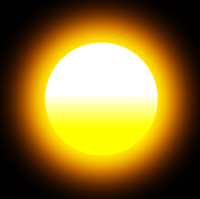New Syntax for if, match and unpackiing-without-match
Expression versions of If and Match
If and match statements so far have been available as statements only:
if (cond) {
print!("It's true!\n")
} else {
print!(":-(\n")
}
Plasma has both expressions and statements and we wanted to make these available as expressions also (Bug #119):
print!(if cond then "It's true!\n"
else ":-(\n")
We’ve also done the same for matches, here’s an example match statement:
match (n) {
0 -> {
return 1
}
1 -> {
return 1
}
// Any symbols here must be constructor symbols or free variables.
var m -> {
return fib4(m-1) + fib4(m-2)
}
}
Can now be written as an expression:
return match (n) {
0 -> 1
1 -> 1
// Any symbols here must be constructor symbols or free variables.
var m -> fib6(m-1) + fib6(m-2)
}
Of course as a Plasma programmer you’re likely to use both syntaxes. The statement oriented syntax works very nicely when a statement is more complex and/or binds multiple variables. You’re also going to need to use the statement variants when different branches use or observe different resources.
Deconstruction without pattern matching
The other new syntax added was in Bug #120 and allows the deconstruction of a structure without use of a match statement.
Foo(var v1, var v2) = <expr>
is now valid syntax and is equivalent to:
var v1, var v2
match(<expr>) {
case Foo(var v1a, var v2a) -> {
v1 = v1a
v2 = v2a
}
}
You can see why we had to add this new syntax.
There are two interesting things here. This only works when the deconstruction is guaranteed to succeed, that is the expression’s type has only a single data constructor. We may relax this in the future and allow it in cases where there are multiple constructors but we already know which one is bound or maybe even in the condition of an if statement which would allow a kind of test to occur. But those are ideas for the medium-term future.
The other interesting thing is that we’ve had to change the use of the var keyword somewhat. Rather than introducing a variable declaration:
var v1, v2, v3
Which would declare all three vars, we now require the var keyword in front of each new variable:
var v1, var v2, var v3
But even that doesn’t make sense when there’s no = symbol with a right-hand-side. We prefer (and the parser is limited to):
var v1 var v2 var v3
The former syntax is okay when:
var v1, var v2, var v3 = <expr>
<expr> is an expression with "arity 3" (it has 3 results) and can therefore bind 3 fresh variables here.
Recall that the var keyword is used to introduced fresh variables, so this also works:
var v1 var v2 var v3 v1, v2, v3 = <expr>
Introducing variables ahead of their use is required when they’re bound differently on different branches:
var x
var y
if (...) {
Point(x, y) = getPoint(...)
} else {
x = 0
y = 0
}
Of course, using an if expression this could just be written in two lines:
var x, var y = if (...) then getPoint(...)
else 0, 0
This works because if and case expressions can also have any arity, in this case they have arity 2.
The point of syntax
Why bother working on syntax improvements when Plasma is still under such heavy early development, isn’t that the kind of improvement you make later after some kind of "minimal viable product"? Also isn’t it hard to iterate on syntax when as yet no-one has any real world experience with Plasma?
It seems like we can make an exception in these cases because:
-
It makes it easier for me to write tests, meaning the new syntax is good.
-
It feels like these are both improvements.
-
Users will now have some more flexibility in how they write their code (we didn’t take away much old syntax).
-
I was always confident I wanted to add both these changes, what was unclear was the details.
-
It’s fun.
I’ve also updated the example on Plasma’s front page!
 PLASMA
PLASMA